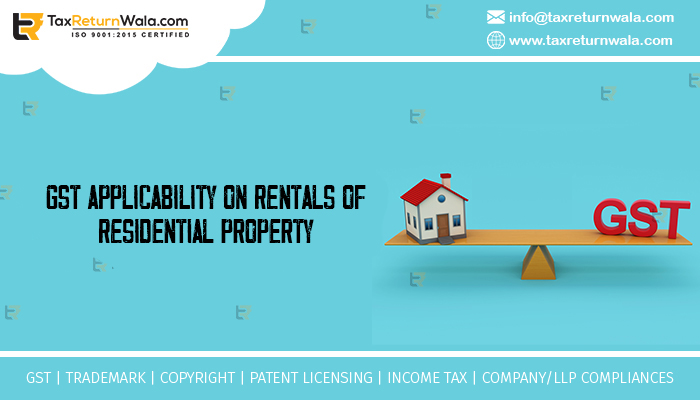How has GST applicability on renting of residential property changed?
The government has changed the scenario for the levy of goods and service tax on renting the residential property with effect from July 18, 2022.
Earlier, GST was levied on the renting of commercial property. Recently, as per the Notification No. 05/2022- Central Tax (Rate) dated July 13, 2022, the government has made the renting of a residential dwelling to a registered person also taxable.
Provided that, the GST council has directed to levy such goods and service tax on the basis of the reverse charge mechanism (RCM).
This means that the recipient of the services i.e tenant is under an obligation to pay goods and service tax to the government if he is a registered person under GST. Henceforth, if the tenant is a registered person under the goods and service tax act, he shall be bound to pay goods and service tax to the government at the rate of eighteen percent (18%) under the reverse charge basis.
However, if the tenant pays the tax under a reverse charge basis on renting such residential property, he is eligible to claim the value of such tax paid as a deduction as part of the input tax credit during the payment of taxes on the net outward supplies at the time of filing of their periodic GST returns.
The latest notification by the government clearly denotes that the liability to pay goods and service tax will not be that of the landlord in any scenario even if he is a registered person under the GST act but in case if the tenant is registered then he is under the sole liability to pay GST on the basis of the reverse charge to the government with effect from July 18, 2022.
As per the provisions of the goods and service tax act, a person is mandatorily required to get GST registration if the value of supply of goods and services exceeds a certain specified limit i.e. 40 lakh per financial year in case of supply of goods and Rs. 20 lakh in case of a supply of the services. However, in certain prescribed special states the said limit is Rs. 10 lakh. So, in any case, if the person makes a supply exceeding the aforementioned limits, he shall seek registration under the GST act. The point to be noted here is if the person takes on rent any residential property, he shall be under an obligation to pay the tax on a reverse charge basis to the government.
The availability of the ITC to the tenant on payment of the GST on renting portion varies as per the kind of registered person. Hence, if a person is registered under the scheme of composition levy, then as per the provisions of the goods and service tax act, he cannot claim the input tax credit on the rental expenditure.
Keeping the taxability criteria as per the department’s notification in mind, the corporates which provide the accommodation facilities to their specified employees by renting or taking a property on lease for the employees in its own name will fall under the umbrella to pay goods and service tax on the rent paid on the reverse charge basis which will eventually add to their amount of expenditure.
Henceforth, if you are registered under the Goods and Service Tax Act and have taken a residential property on rent, please make a note that you need to pay GST on such rent to the government on the basis of a reverse charge which can be claimed as deduction while paying the tax on sales to the government.
Need more picks on GST, please feel free to ping us at info@taxreturnwala.com


